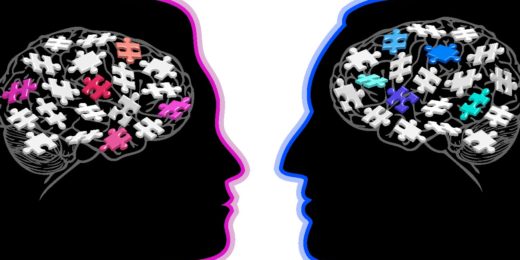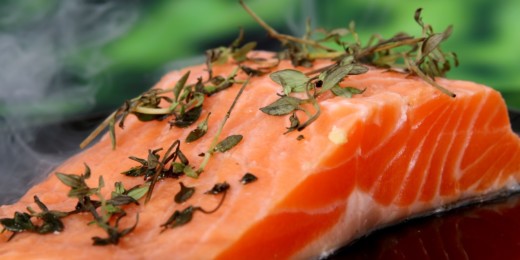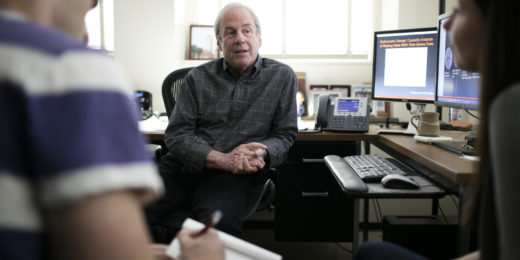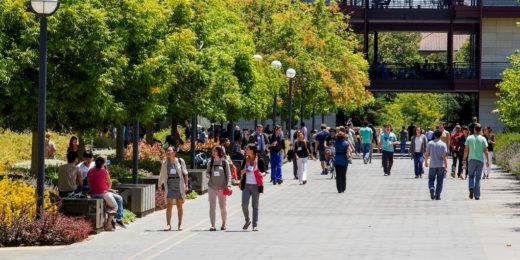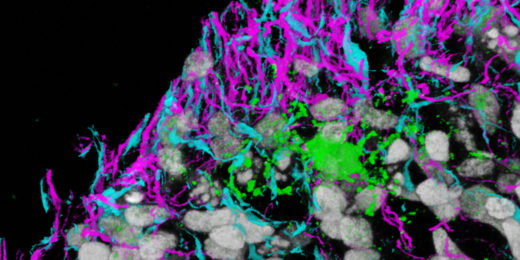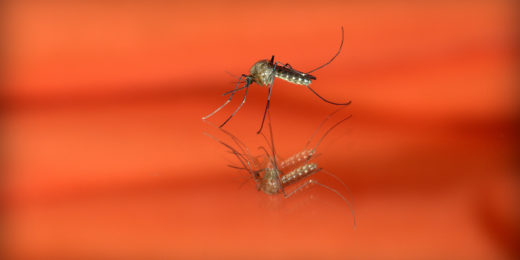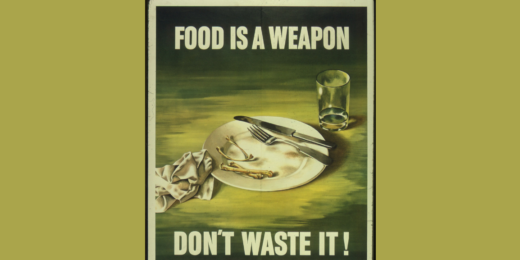Alvin Roth, a Nobel laureate and Stanford faculty member, explains how the economic concept of repugnant markets applies to heroin in the United States.
Month: January 2019
Nature, not nurture: New evidence in mice that recognition of a stranger’s sex is baked into the brain at birth
Male mice are hardwired to recognize the sex of other mice, a new study shows. Females' circuitry guiding that decision differs from males.
A skeptical look at popular diets: The paleo diet isn’t just for cavemen
In the second piece in the series A Skeptical Look at Popular Diets, clinician and researcher Randall Stafford examines the paleo diet.
Pediatric surgeon specializes in solving problems
Stanford Medicine pediatric surgeon and innovator Tom Krummel discussed his career trajectory at a recent talk.
Why are so many women nearly dying in childbirth? Cross off a few leading theories
More than 50,000 pregnant women per year experience life-threatening complications of pregnancy and childbirth, but no one understands why.
Hunting for the origins of depression
Stanford psychologist Ian Gotlib is examining how depression develops and working to identify potential opportunities for intervention.
Instead of Instagramming medical school, let’s reverse it
Behind the lens and filters of Instagram is the truth about how hard it is to actually do medicine, and what Instagram doesn't exactly showcase.
Unpacking “Medicare for All”
Proponents say a "Medicare for All" approach would expand access and affordability of health care in the U.S. But there are practical downsides.
Culturing technique captures hard-to-study, critically important brain cell — the oligodendrocyte — in action
Brain cells called oligodendrocytes supply insulation by wrapping neurons in multiple layers of fatty extensions, preserving signal strength and markedly speeding up transmission. But studying these cells in culture has been virtually impossible -- until now.
When will dengue turn life-threatening? Researchers identify genes that provide a tell
Stanford scientists have devised a way to predict the severity of dengue cases using a set of 20 genes and specific expression patterns.
Positive mindset helps with an allergy therapy’s side effects, says Stanford study
A small change in how patients learn to think about side effects of a food allergy treatment greatly reduces their anxiety, Stanford researchers found.
Any way you slice it, there’s a lot to say about nutrition studies
Nutrition experts debate the reliability of nutrition studies, their typical flaws and how researchers can perform better studies moving forward.
How yellow fever shaped 19th-century New Orleans: A Q&A
A Stanford historian explains how frequent yellow fever epidemics in 19-century Louisiana generated cultural and social norms in its fatal wake.
A look back at the military’s influence on nutrition in the U.S.
Stanford historian reveals how the U.S. military profoundly shaped modern American nutrition during World War II and the Cold War.
Signal identified that can promote growth of small arteries, helping injured hearts
Researchers have discovered a protein signal that promotes the growth of collateral arteries, which can provide backup if major arteries are blocked.
Why hasn’t digital technology transformed health care delivery?
The health sector should focus on consumer needs to better harness the promise of digital technology, writes a Stanford Medicine professor and a colleague.



